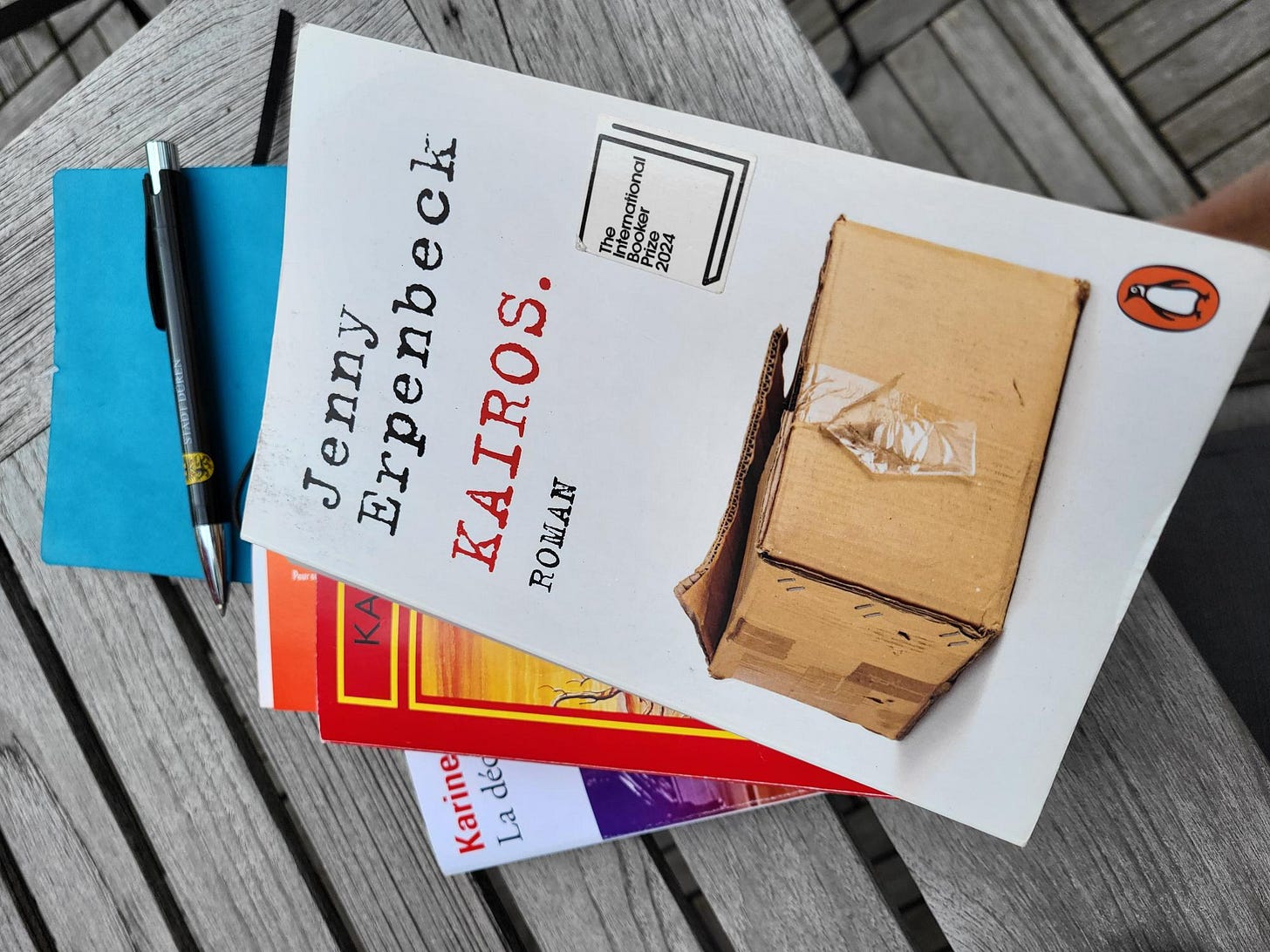Jenny Erpenbeck, Kairos
Review of Kairos by Jenny Erpenbeck
Translated from German by Michael Hofmann. New Directions, 2023
A love story turning into a nightmare.
A country unravelling.
Dreams crushed by a new reality.
These are the ingredients of Jenny Erpenbeck’s remarkable novel Kairos, winner of the 2023 Booker Prize.
It’s the summer of 1986 in East Berlin. Katharina, a 19-year-old girl—mature for her age—meets Hans, 34 years her senior: a successful writer and intellectual of the East German variety, deeply knowledgeable about music, literature, and cultural affairs at large. He is also married, with a son and a rotating cast of lovers. They see each other on a bus, exchange glances, wait together under a bridge for the rain to end. Walk in the same direction. He invites her for a cup of coffee. And that is the beginning of a tumultuous relationship that will last a little more than five years—years that will bring the collapse of the communist system in Europe, the downfall of the Berlin Wall, and fundamental changes for people in the East who see their entire way of life—no matter how difficult and deprived of freedom it was—vanishing before their very eyes.
Jenny Erpenbeck weaves these two stories together with great dexterity: the deterioration of a relationship that begins as a grand love affair, and the disintegration of a country, its elite, and the hopes it had kindled almost forty years earlier. But it is not the masterful plot alone that makes this novel one of the best I’ve read in a long time. It is Erpenbeck’s unique way of telling the story—her poetic language and her mastery of rhythm. Some chapters read like prose poems, especially those recounting the darkest moments of the story, with each paragraph beginning with the same sentence.
At first, we witness—step by step, moment by moment—how the love between Katharina and Hans blossoms. We hear each of their voices, see the other through their eyes, the point of view sometimes shifting from sentence to sentence. The first hundred pages unfold like this: love growing in slow motion. And you might wonder why this novel—enjoyable as it is—would go on to win one of the most prestigious international prizes for fiction. But then, the rhythm changes along with the relationship. It becomes faster. And faster. And faster. And toxic. Increasingly so. For both of them, there seems to be no way out. They are obsessed with each other—emotionally, sexually. Or, as Hans puts it while watching Katharina in bed: “Hell is now a stable thing resting on four bedposts.” (My translation.)
And while the country they love (after all, Hans once chose to move to the East to help build a new society) completely falls apart and is more or less – at least, it’s how they see it - overtaken by the West, their private hell worsens, as does the economic situation of many people around them, who lose their jobs, their social environment, their purpose in life. Private life and political events become one story. Each reflects and explains the other. And that is a great literary achievement.
Even memory—the starting point of the novel—turns toxic at the very end, in the epilogue, where Katharina finds out that Hans was never who she thought he was. And that, too, is a political thing.
Thanks for reading! Subscribe for free to receive new posts and show me that you support my work.
Have you read Kairos? Then let me know what you think about it! I would love to hear from you.




